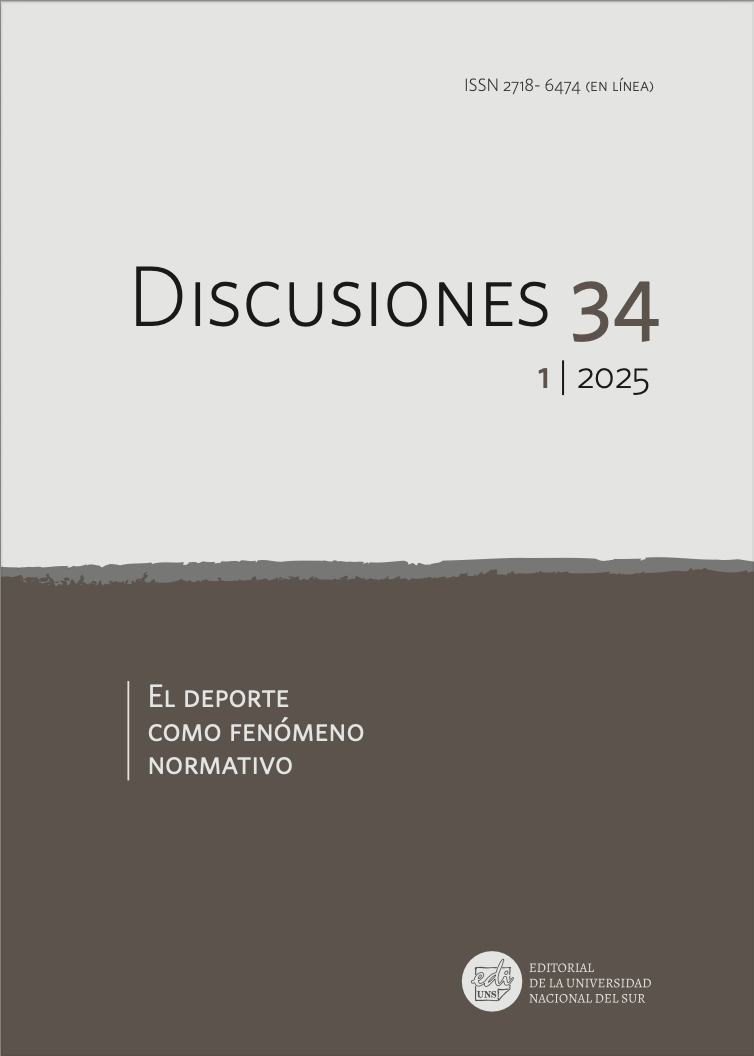Some Suitsian Remarks on A Hartian Conception of Sport
DOI:
https://doi.org/10.52292/j.dsc.2025.4583Keywords:
Hart, Suits, sport, game, rules, judging, refereeingAbstract
The paper presents some comments on José Luis Pérez Triviño’s Hartian conception of sport. In these remarks, I will draw on the philosophy of Bernard Suits, whose thought also plays an important role in Pérez-Triviño’s consideration. In the first part, I comment on the analogy between sport and law, which is the main conceptual vehicle of Pérez Triviño’s consideration, and I point out some of the limitations of this analogy. Some of these are particularly interesting in the light of Suits’ conceptual distinctions. In the second part, I reconstruct and comment on the Pérez Triviño’s characterisation of sport. This characteristic is based on an essentialist structure that might be called the Suits-Parry model of the definition of sport. In the third part, I propose an interpretation of Suits’ formalism, that does not necessarily conflict with other theories of sport -conventionalism and interpretivism. I also reconstruct Suits’ position on adjudication in sport and compare it with the Pérez-Triviño position. It turns out that Suits’ formalism is not one of the two extremes between
which the Hartian conception of sport is to be located. In the concluding remarks, I suggest that because of the indicated links with Suits’ philosophy, there are also some important neo-Suitsian elements in Perez Trivino’s Hartian conception of sport.
Downloads
References
Boyd, M. (2014). Riding the Bench – a Look at Sports Metaphors in Judicial Opinions. Harvard Journal of Sports & Entertainment Law, 5(2), 245-264.
Caillois, R. (2001). Man, Play and Games. USA: University of Illinois Press.
Hart, H. L. A. (1994). The Concept of Law (2nd Ed). Oxford: New York: Clarendon Press, Oxford University Press.
Huizinga, J. (1980). Homo Ludens: A Study of the Play-Element in Culture. London, Boston and Henley: Routledge & Kegan Paul.
Kobiela, F. (2016). The nature of sport and its relation to the aesthetic dimension of sport. Acta Universitatis Carolinae. Kinantropologica, 52(2), 75-84.
Kobiela, F. (2018). Should chess and other mind sports be regarded as sports? Journal of the Philosophy of Sport, 45(3), 279-295.
Parry, J. (2018). E-Sports Are not Sports. Sport, Ethics and Philosophy, 13(1), 3-18. Doi: https://doi.org/10.1080/17511321.2018.1489419
Pérez Triviño, J. L. (2025). A Hartian Conception of Sport. Discusiones.
Searle, J. (1998). Mind, Language and Society: Philosophy in the Real World. Nueva York: Basic Books.
Suits, B. (1973). The Elements of Sport. En R. Osterhoudt (ed.), The philosophy of sport: A collection of original essays (pp. 9-19). Springfield, IL.: Thomas.
Suits, B. (1988). Tricky Triad: Games, Play, and Sport. Journal of the Philosophy of Sport, 15(1), 1-9. Recuperado de https://doi.org/10.1080/00948705.1988.9714457
Suits, B. (2014). The Grasshopper, Games Life and Utopia. Peterborough, CA: Broadview Press.
Vossen, D. (2004). The Nature and Classification of Games. Avante, 10(1),53-68.
Published
How to Cite
Issue
Section
License
Copyright (c) 2025 Filip Kobiela

This work is licensed under a Creative Commons Attribution-NonCommercial 4.0 International License.
Discusiones does not withhold rights of reproduction or copyright. Consequently, authors may share the final versions of publications.


